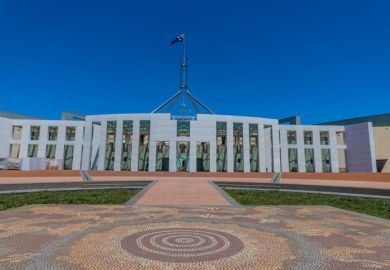Claims that UK vice-chancellors’ salaries are “out of kilter” with pay in other leadership roles have been challenged by an analysis.
Nicola Dandridge, chief executive of the Office for Students, complained that university heads were overpaid compared with other senior post-holders in public life when she responded to the Committee of University Chairs’ new code on executive remuneration earlier this month.
However, the author of a study submitted to the House of Commons’ inquiry into value for money in higher education said that the salaries of university leaders are “markedly below the salaries of equivalent public sector positions”.
The analysis, submitted by Michael Nisbet, a retired management consultant with a background in executive pay, suggests that the criticism of Russell Group vice-chancellors in particular is “quite misplaced and unjustified”.
Russell Group universities employ almost 7,000 staff on average and pay their vice-chancellors a median salary of £290,000 – about £50,000 more on average than those outside the 24-strong group, says the study.
This is significantly less than the median salary of £420,000 paid to those running public sector organisations of a similar scale, said Mr Nisbet, who added that his calculations used the Annual Survey of Hours and Earnings published by the Office for National Statistics.
Mr Nisbet said that the leader of a similar-sized organisation in the not-for-profit sector would “typically earn over a quarter more [than the average Russell Group vice-chancellor] at more than £370,000, and in the public sector, nearly half as much again at over £420,000”.
“For the majority of higher education institutions with 1,000 to 10,000 or more employees, their average vice-chancellor salaries are markedly below the salaries of equivalent public sector positions,” added Mr Nisbet, who holds an MBA from Harvard Business School and an economics degree from the University of Cambridge.
“Recent criticism of some vice-chancellors’ pay being too high may be justified in one or two instances but…any criticism of the generality of…pay levels being too high is quite misplaced and unjustified,” his analysis concludes.
Much of the recent debate had failed to acknowledge the reality of high pay in both the private and public sector, Mr Nisbet argued. For instance, one in 100 people in the UK now earns £139,000 a year and one in 1,000 earns £360,000 a year. For the public sector, these figures were £115,000 and £230,000, respectively.
Given that several Russell Group universities had more than 10,000 staff, recent suggestions by Labour peer Lord Adonis that vice-chancellors’ salaries be capped at £200,000 are “simply unworkable and unsustainable”, Mr Nisbet said.
Comparisons with the prime minister’s £150,042 salary were also unhelpful as it had been held artificially low since 2007 for political reasons, said Mr Nisbet.
Theresa May would be paid at least £300,000 annually if Parliament had adopted the Senior Salaries Review Body’s recommendations in 2007 that the prime minister be paid three and a half times an MP’s salary, which the Independent Parliamentary Standards Authority said in 2012 should be about £80,000.
Register to continue
Why register?
- Registration is free and only takes a moment
- Once registered, you can read 3 articles a month
- Sign up for our newsletter
Subscribe
Or subscribe for unlimited access to:
- Unlimited access to news, views, insights & reviews
- Digital editions
- Digital access to THE’s university and college rankings analysis
Already registered or a current subscriber?








